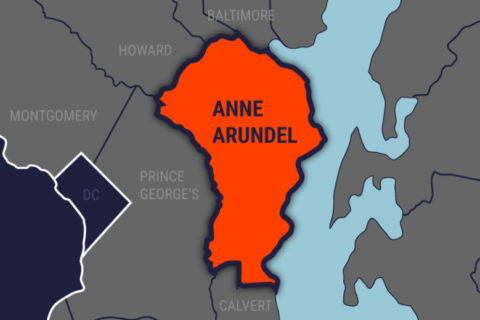WASHINGTON – After six people lost their lives in an Annapolis mansion fire, firefighters said sprinklers could have made all the difference.
They are required in new Maryland homes but in Virginia, one fire chief says chances aren’t as good.
Loudoun County Fire Chief Keith Brower says homes are built with highly flammable materials, contain more synthetics and plastics than ever before and are burning faster than even 10 years ago.
“The escape time we say has reduced from an average of 10-13 minutes to 3-4 minutes,” Brower says.
Sprinklers can buy residents time and contain the fire until help arrives, he says. But unlike in Maryland, Virginia localities can’t make changes to the building code and codes in the commonwealth say sprinklers aren’t required.
“You go rent a hotel room, it’s got a sprinkler in it, ‘Hey, you’re safe.’ You come home after vacation thinking you’re safe and your home is not protected, and that’s where you’re going to die,” he says.
He says all states typically subscribe to a national family of code, the International Code Congress. At the latest national hearings, sprinklers were included in residential occupancies in one- and two- family dwellings. But Virginia does not adhere to the ICC code.
“In Virginia, sprinklers and other fire detection and fire suppression features are governed in the building code. The building code in Virginia is pursuant to state law,” Brower says.
State law doesn’t give localities the authority to change the building code. In Maryland, sprinklers are required in all new construction since 2004. Prince George’s County was one of the first in the country to require sprinklers in single-family homes.
“Townhouses and single familes are excluded in Virginia from the building code as far as requirements for sprinklers,” Brower says.
Virginia homeowners can retrofit their houses with sprinklers, but many choose not to.
Home builders in Maryland don’t have that choice. Former Prince Georges County Fire Chief Ron Siarnicki says no one has died in a home with sprinklers in the county’s history.
That fact alone, he says, proves sprinklers are worth the investment.
“My guess is [they are] somewhere between 1 percent and 1.5 percent of the total cost of the house. So you’re talking about the same as a carpeting upgrade. And the protection you get from that is 1,000 fold because your family is going to be protected for the life that you live in the house,” Siarnicki says.
Both career firefighters says they’ve heard a number of reasons against installing sprinklers, the most common being the cost or fear of water damage they’ll cause.
On that point, Brower cited an old adage in firefighting: Things dry out, but they don’t unburn.
Follow @WTOP on Twitter and on Facebook.







